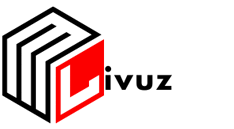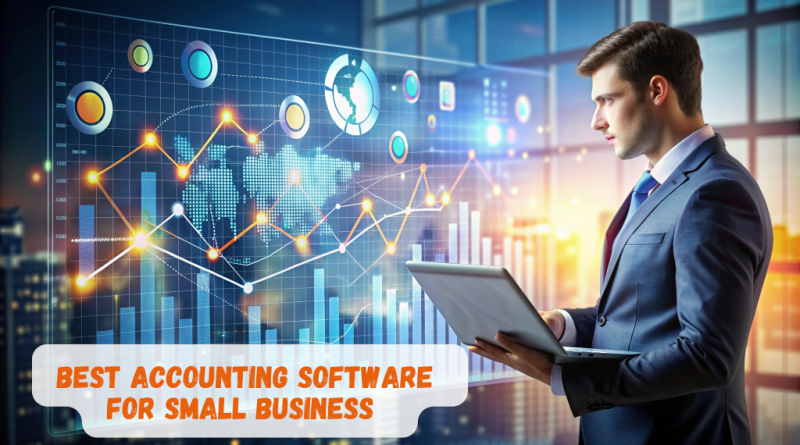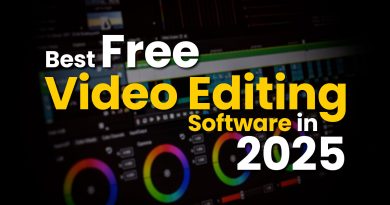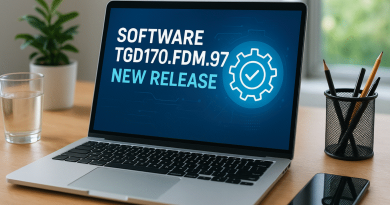Best Accounting Software for Small Businesses: A Complete Guide for 2025
Running a small business comes with its fair share of challenges, and one of the toughest is managing finances. From tracking expenses and sending invoices to preparing taxes and monitoring cash flow, small business owners often juggle multiple roles at once. That’s where accounting software steps in making life easier, faster, and more accurate.In 2025, accounting tools have advanced far beyond spreadsheets and manual bookkeeping. They now integrate automation, AI, cloud technology, and mobile apps, offering small businesses the same financial efficiency that big corporations enjoy. But with so many options in the market, choosing the right software can feel overwhelming.This comprehensive guide will break down the best accounting software for small businesses in 2025, their key features, pros and cons, pricing, and how to pick the one that’s right for you.
Why Small Businesses Need Accounting Software
Before diving into the best options, let’s understand why accounting software is essential:
-
Saves Time – Automates repetitive tasks like data entry, invoice creation, and expense tracking.
-
Improves Accuracy – Reduces the chances of human error in calculations.
-
Simplifies Taxes – Generates tax-ready reports, saving you stress during tax season.
-
Boosts Cash Flow Management – Helps you keep an eye on income, overdue invoices, and expenses.
-
Professional Invoicing – Customizable invoices give your business a polished, professional look.
-
Scalability – As your business grows, you can add more features or upgrade plans easily.
Simply put, accounting software is not just about keeping books—it’s about gaining better control of your business finances.
Key Features to Look For in Accounting Software
When evaluating accounting tools for small businesses, look out for:
-
Ease of Use – Simple dashboard and minimal learning curve.
-
Automation – Auto-billing, recurring invoices, and expense tracking.
-
Cloud Access – Work from anywhere, anytime.
-
Integration – Compatibility with banking apps, e-commerce platforms, and payroll systems.
-
Reporting – Financial summaries, profit & loss statements, and forecasting.
-
Multi-user Access – Allows accountants, employees, and business owners to collaborate.
-
Affordability – Plans that suit small-business budgets.
Now let’s dive into the top accounting software for small businesses in 2025.
1. QuickBooks Online
Best Overall for Small Businesses
QuickBooks Online continues to dominate the accounting software space in 2025. Trusted by millions worldwide, it offers everything a small business needs: invoicing, expense tracking, tax preparation, payroll, and reporting.
Key Features
-
Cloud-based with mobile app access.
-
Bank account integration for automatic transaction syncing.
-
Customizable invoices with payment links.
-
Detailed reporting (profit and loss, cash flow, balance sheets).
-
Strong third-party app marketplace (Shopify, PayPal, Square, etc.).
Pros
✔ Wide range of features for all industries.
✔ Excellent scalability for growing businesses.
✔ Easy collaboration with accountants.
Cons
✘ Higher learning curve for beginners.
✘ Can get pricey with add-ons.
Pricing
-
Starts at $30/month.
-
Advanced plans go up to $200/month with premium features.

2. Xero
Best for Collaboration and Ease of Use
Xero is particularly popular among startups and creative businesses thanks to its user-friendly design and unlimited user access.
Key Features
-
Clean, intuitive dashboard.
-
Unlimited users at no extra cost.
-
Project tracking for service-based businesses.
-
Inventory management built-in.
-
Over 1,000 third-party integrations.
Pros
✔ Perfect for teams that need multi-user access.
✔ Great mobile app for on-the-go management.
✔ Strong global presence (ideal for businesses with international clients).
Cons
✘ Payroll is limited in some countries.
✘ Reports not as in-depth as QuickBooks.
Pricing
-
Starts at $15/month.
-
Premium plans up to $78/month.
3. FreshBooks
Best for Invoicing and Freelancers
FreshBooks is designed with freelancers and small service providers in mind. It’s all about simplicity and invoicing.
Key Features
-
Gorgeous, customizable invoices.
-
Time-tracking features for billable hours.
-
Easy expense tracking and receipt scanning.
-
Double-entry accounting system for accuracy.
-
Payment integration with credit cards and PayPal.
Pros
✔ Invoicing is the best in the market.
✔ Great for service-based small businesses.
✔ Simple interface—ideal for non-accountants.
Cons
✘ Limited scalability for larger businesses.
✘ Fewer integrations than QuickBooks or Xero.
Pricing
-
Starts at $19/month.
-
Premium plan at $60/month.
4. Wave Accounting
Best Free Option
For small businesses on a tight budget, Wave is unbeatable. It’s completely free, with paid add-ons for payroll and payment processing.
Key Features
-
Free invoicing and accounting.
-
Expense tracking and bank connection.
-
Multi-business support in one account.
-
Mobile app for receipts.
Pros
✔ 100% free core features.
✔ Simple to use for beginners.
✔ Great for microbusinesses and freelancers.
Cons
✘ Limited advanced features.
✘ No dedicated customer support for free plan.
Pricing
-
Core software: Free.
-
Payroll add-ons start at $20/month.
5. Zoho Books
Best for Automation and Integrations
Zoho Books is part of the Zoho suite, making it perfect if you already use Zoho CRM, inventory, or project management tools.
Key Features
-
Automated workflows (reminders, invoice approvals).
-
Tax compliance tools.
-
Multi-currency support.
-
Integration with 40+ Zoho apps.
-
Strong mobile functionality.
Pros
✔ Affordable with powerful automation.
✔ Great for international small businesses.
✔ Excellent if you use other Zoho tools.
Cons
✘ Limited payroll features.
✘ Smaller ecosystem compared to QuickBooks.
Pricing
-
Free for businesses with revenue under $50K.
-
Paid plans start at $20/month.
6. Sage Business Cloud Accounting
Best for Growing Small Businesses
Sage is a long-standing name in accounting and has modernized with cloud-based solutions. It’s reliable and feature-packed.
Key Features
-
Easy invoice creation and expense tracking.
-
Bank reconciliation.
-
Real-time collaboration with accountants.
-
Advanced reporting and forecasting tools.
Pros
✔ Strong reputation and reliability.
✔ Good for scaling businesses.
✔ Advanced features for reporting.
Cons
✘ Interface is not as sleek as competitors.
✘ Limited third-party integrations.
Pricing
-
Plans start at $10/month.
-
Advanced plans up to $25/month.
7. Kashoo
Best for Simplicity and Automation
Kashoo is lesser-known but powerful for businesses that want straightforward accounting.
Key Features
-
AI-powered categorization of expenses.
-
Automatic bank feeds.
-
Unlimited users.
-
Simple dashboard.
Pros
✔ Extremely easy to use.
✔ Affordable pricing.
✔ Great for small, simple businesses.
Cons
✘ Lacks advanced features like project tracking.
✘ Limited global reach.
Pricing
-
Starts at $20/month.
Choosing the Right Accounting Software for Your Business
Here’s how to decide:
-
For freelancers/service providers → Go with FreshBooks.
-
For budget-conscious microbusinesses → Wave Accounting is best.
-
For teams with multiple users → Xero works well.
-
For growing small businesses needing scalability → QuickBooks Online or Sage.
-
For automation and integrations → Zoho Books.
The Future of Accounting Software
Accounting software in 2025 and beyond is expected to leverage:
-
AI for predictive analysis (forecasting cash flow, spotting risks).
-
Blockchain for transaction transparency.
-
Deeper integrations with e-commerce and banking platforms.
-
Smarter automation, reducing the need for manual intervention.
For small businesses, this means financial management will only get easier, smarter, and more reliable.
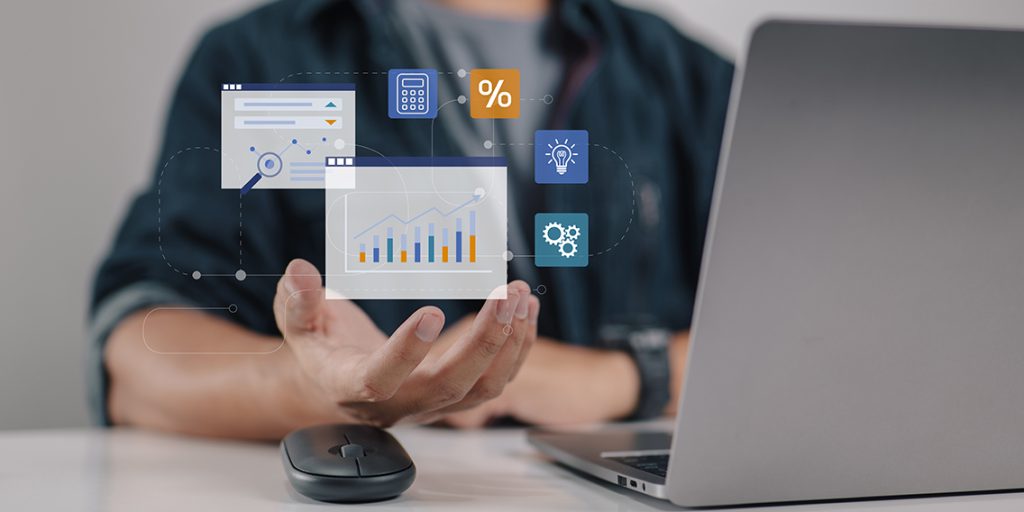
Conclusion
Choosing the best accounting software isn’t about picking the most popular—it’s about finding the right fit for your business. Whether you’re a freelancer, startup, or growing enterprise, there’s a solution tailored for you. Tools like QuickBooks, Xero, and FreshBooks bring power and polish, while free options like Wave ensure that even budget-strapped entrepreneurs can manage their books professionally.The bottom line? Accounting software isn’t just a tool—it’s a business partner that helps you stay organized, compliant, and profitable in a competitive world.
Frequently Asked Questions (FAQ)
1. What is the best accounting software for small businesses in 2025?
The best software depends on your business needs:
-
QuickBooks Online – Best overall with robust features.
-
Xero – Best for collaboration and unlimited users.
-
FreshBooks – Best for freelancers and invoicing.
-
Wave – Best free option.
-
Zoho Books – Best for automation and integrations.
2. Do I really need accounting software if my business is small?
Yes. Even small businesses benefit from accounting software because it reduces manual work, improves accuracy, and saves time. It also helps track expenses, create invoices, and generate reports that make tax filing easier.
3. Can I use free accounting software?
Absolutely. Wave Accounting offers free invoicing, expense tracking, and basic accounting features. However, if you need payroll, advanced reporting, or tax tools, you may need a paid option.
4. Which accounting software is easiest for beginners?
FreshBooks and Wave are the easiest for beginners because of their simple, intuitive dashboards. QuickBooks has more features but comes with a learning curve.
5. Is cloud-based accounting software safe?
Yes. Most leading accounting platforms use bank-level encryption, two-factor authentication, and secure servers. Always choose a reputable provider and enable security features like strong passwords and 2FA.
6. Can I access my accounting software on my phone?
Yes. Most top providers like QuickBooks, Xero, and FreshBooks offer mobile apps. These apps let you send invoices, scan receipts, and check cash flow on the go.
7. How much does accounting software cost?
Pricing varies:
-
Free (Wave).
-
Entry-level: $10–$30/month.
-
Premium: $50–$200/month depending on features like payroll, advanced reporting, and multi-user access.
8. Do these tools handle taxes automatically?
Yes, most software prepares tax-ready reports and calculates sales tax. Some, like QuickBooks, even integrate directly with tax filing services. However, you may still need an accountant for complex cases.
9. What is the best software for freelancers?
FreshBooks is the top choice for freelancers thanks to its strong invoicing, time-tracking, and expense features. Wave is also a great free alternative.
10. Can I switch from one accounting software to another?
Yes. Most providers let you import/export data in formats like CSV or Excel. Some also offer migration support to make the transition smoother.
11. Do I need an accountant if I use accounting software?
Not necessarily. Many small businesses manage fine with software alone. However, an accountant can provide expert advice, handle complex tax issues, and ensure compliance with regulations.
12. Which software is best for businesses with multiple team members?
Xero is best for collaboration because it allows unlimited users at no extra cost. QuickBooks and Zoho Books also support multi-user access but charge based on the number of users.
